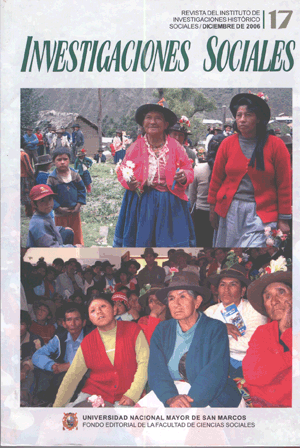Aprendimos a convivir con los senderistas y militares»: Violencia política y respuesta campesina en Huamanquiquia, 1980-1993
DOI:
https://doi.org/10.15381/is.v10i17.7065Keywords:
Huamanquiquia, Peasant Communities, intra and inter community conflicts, political violence, Shining Path, Police and Military Forces, State, Peru.Abstract
This study reconstructs the political violence that stroke the Andean communities of the district of Huamanquiquia, in the province of Victor Fajardo, centralsouthern part of Ayacucho. The presence of armed actors in these communities polarized the peasants and had terrible consequences for the community organization and the safety of its members. Their possibilities of cohesion were weakened during the critical years of war, ancient inter and intra community conflicts arose and permeated the social process of violence. During this process, the peasants of Huamanquiquia managed to survive adapting themselves to the circumstances of war and to the political objectives of the armed sectors. This could be considered as a type of peasant response of adaptation-in-resistance.Downloads
Published
Issue
Section
License
Copyright (c) 2006 Renzo Salvador Aroni Sulca

This work is licensed under a Creative Commons Attribution-NonCommercial-ShareAlike 4.0 International License.
AUTHORS RETAIN THEIR RIGHTS:
a. Authors retain their trade mark rights and patent, and also on any process or procedure described in the article.
b. Authors retain their right to share, copy, distribute, perform and publicly communicate their article (eg, to place their article in an institutional repository or publish it in a book), with an acknowledgment of its initial publication in Investigaciones Sociales.
c. Authors retain theirs right to make a subsequent publication of their work, to use the article or any part thereof (eg a compilation of his papers, lecture notes, thesis, or a book), always indicating the source of publication (the originator of the work, journal, volume, number and date).






